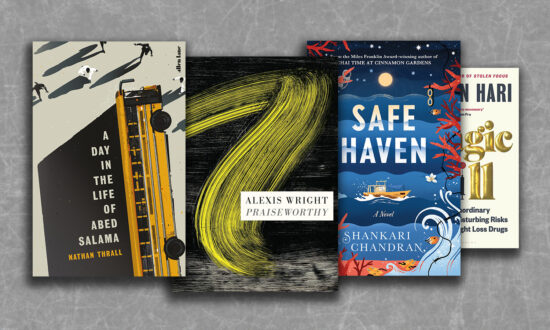Growing up in the neon-haze of the Gold Coast in the 1980s future archaeologist Andrew Sneddon found respite from his often-violent home life in the annals of history. It is an escape and a love affair he unravels alongside the story of his domestic violence-laced childhood in his pithy, emotionally engaging and beautifully written new memoir, Prehistoric Joy.
Sneddon, who now works as a heritage consultant, was born in Canberra to parents who eventually divorced, Sneddon’s mother relocated to Surfers Paradise in the early 80s. She began a tumultuous second marriage to an alcoholic criminal named Philip, an amoral swindler who, he says, was shot through with “a dark seam of violence, a kind of tar that seeped out of him after a few drinks, was immune to empathy and thought nothing of deceit.”
Prehistoric Joy is littered with recollections of a childhood characterised by violence and deprivation. Over the course of only a few short years, Sneddon’s mother uprooted her three children with alarming regularity, often waking them in the night and having them stuff their meagre possessions into pillowcases before fleeing in the wake of another brutal altercation with her husband.
But, as Sneddon’s stark prose elucidates with great clarity, there was no escaping Philip and his propensity for alcohol-fuelled violence. Time and time again, Sneddon’s mother would reconcile with him, at once restarting and perpetuating the cycle of brutality and uncertainty that came to define not only her own life but also her children’s youth.
“We were arrested by our circumstances in many ways,” Sneddon explains. “We were stuck in this endless loop and we never really knew what was going to happen next, where we were going to end up or when things were going to blow up. I write about this in the book, actually, but being powerless, feeling powerless, when you’re a kid really shapes your personality. We didn’t know what was happening from one day to the next, if we were going to be homeless or if we were going to end up in a refuge.”
Along with his older brother and younger sister he moved house countless times, shifting between the high-life and the low-life, alternately inhabiting derelict beachside apartments and lavish canal-side mansions … sleeping on dirty couches and floors, sometimes eating regularly and sometimes not, always awaiting the next bust-up between his mother and Philip.
Sneddon is sage and circumspect about his childhood and adolescence. He says that he wrote Prehistoric Joy not for catharsis or to exorcise personal demons but so that his 10-year-old son “would have something to read about his old man if he’s curious when he turns 40.” His prose is clear-eyed and deliberate in its descriptions of the domestic violence his mother endured. The book is both memorable and mesmerising because of its clarity.

Get InReview in your inbox – free each Saturday. Local arts and culture – covered.
Thanks for signing up to the InReview newsletter.
“I’m becoming a bit of an evangelist about speaking out about it,” he says. “But, at the same time, I’m aware that I have to be careful because I’m a man and I don’t want to be seen to be mansplaining domestic violence that happens to women. I lost my mum a year-and-a-bit ago and I don’t think I ever really forgave her. I certainly know that I never forgave Philip. He was a sociopath, an alcoholic, a conman, a criminal,” he muses. “He was many things.
“But he maintained a hold over my mum right to the end. I remember about a year before she died, she came across someone who had known Philip online and she wanted to contact them, just to see if Philip was still alive. I told her that she was out of her mind, that if he was still alive and she contacted him then we’d probably have him back on our doorstep. I don’t know what the hell it was, but there was clearly still something that was still dragging her back into Philip’s orbit.”
Prehistoric Joy by Andrew Sneddon is published by University of Queensland Press; $32.99.
Support local arts journalism
Your support will help us continue the important work of InReview in publishing free professional journalism that celebrates, interrogates and amplifies arts and culture in South Australia.
Donate Here




